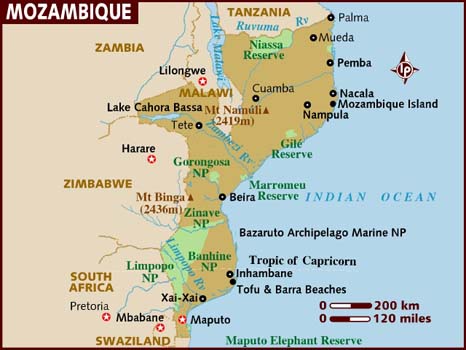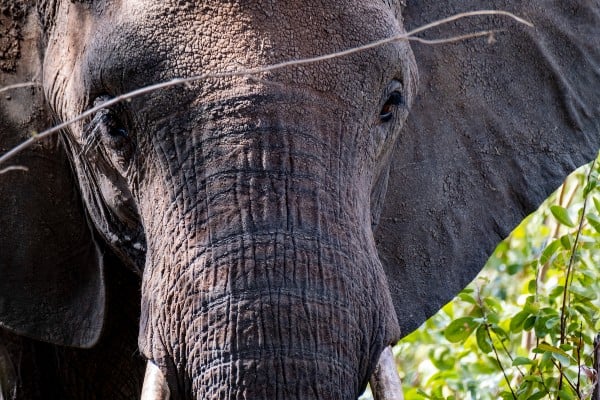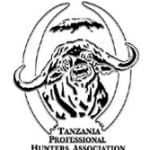Hunting in Mozambique
Mozambique Hunting
On the coast of the Indian Ocean, bordered by South Africa, Zimbabwe and Tanzania, Mozambique is one of the least-developed countries in Southern Africa. Bisected north and south by the Zambezi River, Mozambique’s terrain runs from thick forests to swamplands and even palm forests. With its coastal proximity, the climate is mostly tropical.
Getting to the capital, Maputo, is simple, with flights from Johannesburg and other major cities.
Mozambique hunting is on the comeback. After years of war, political instability and chaos, Mozambique seems to be in a promising situation and Mozambique hunting could experience a resurgence. Game populations are increasing after years of hardship caused by massive poaching. Current-day Mozambique has seen the government working with local people and safari operators to ensure the Mozambique safari hunting industry and local population reaps the benefits of the nation’s wildlife renewal. As a result, poaching has decreased and the overall attitude among Mozambique’s citizens has changed.
Leopard, lion, Cape buffalo, elephant and hippo are among the high-quality trophies taken on Mozambique safaris. There are also good numbers of trophy quality southern greater kudu, Chobe bushbuck, nyala, eland and crocodile.
Mozambique is clearly a country where you must take your malaria medication and you should expect rugged conditions. Be prepared for both extreme heat and cold. Most safari camps in Mozambique are of the traditional East African style.
Airlines
Airlines require that firearms and ammunition be checked. Firearms should be unloaded and securely cased with the ammunition in a separated container. You must, of course, advise commercial airlines that you are traveling with firearms and ammunition. Each airline has stringent restrictions as to weight and packaging. Check there with your intended carrier at least two weeks before departure.
Geography
Mozambique is a southeast African Country bordered by the Indian Ocean to the east, Tanzania to the north, Malawi and Zambia to the northwest, Zimbabwe to the west and Swaziland, South Africa to the southwest.
With the total area of 801,590 km2, making it the world’s 35th-largest country in the world. Mozambique has five principal rivers, including the Zambezi River which is its largest and the most important´, contains three lakes: Lake Niassa or Malawi, Lake Chiuta and Lake Shirwa, all of which are in the North of the country. The major cities in Mozambique are Maputo, Beira, Nampula, Tete, Quelimane, Chimoio, Pemba, Inhambane, Xai-Xai , Vilanculos and Lichinga.
History
The origin of the name “Mozambique” is not certain, but it is believed to have come from the name of a Muslim leader called “Musa al Bique” that lived in the Island of Mozambique, where Vasco da Gama in 1498 ancored his ship.
Soon the area became a trading and resting post, bringing great benefits and riches to the Portuguese through the trade of gold, ivory and slaves. The Portuguese came to colonize this land in 1505.
Climate
Savour and feel a piece of authentic Africa…
Mozambique has a tropical climate, its two seasons being divided into a wet or summer season that runs approximately from October to March; and a dry or winter season from April to September. However its temperature is hardly affected through out the year, with its daytime temperatures ranging between 25 and 30 degrees Celsius.
Society
The Mozambican population have its origins from three different continents, Africa, Europe and Asia; this multiethnic society is composed by approximately 20 million people.
The 16 ethnic groups constitute 99.66% of the population, the prominent group on the northern side of the country are the Macua; the Zambezi valley is dominated by the Sena and Shona; and the southern Mozambique by the Tsonga.
The European origin is mostly originated from Portugal and the Asian from India.
This country enjoys a fast diversity, having many languages being spoken by its inhabitants.
However Portuguese is the official language. English became a business language when Mozambique joined the Commonwealth in 1995, as a result it is taught in school, nonetheless only a very small group of the population actually speak it.
Although their different origins have a diverse outcome, the unity and acceptance of the Mozambican people is outstanding; this unfortunately rare commodity is one of the first and ever lasting impression to its visitors.
Identification
During your stay, you are required to carry identification with you at all times, under the Mozambican law. However, we advise that instead of the original document that you carry a certified copy, which is also acceptable.
Airports
Mozambique as an efficient airport system, with three international airports, in Maputo, Beira and Nampula, and two for domestic traffic in Pemba and Vilanculos.
Visas
All visitors are required to have a visa except those from the following countries: Swaziland, South Africa, Botswana and Zambia. A single visitors visa for 30 days can be obtained at arrival, however it is highly recommended to get a visa from a Mozambican embassy or consulate.
Health
Visitors have to have been vaccinated against yellow fever and be in possession of the certificate. While in Mozambique precautions to avoid mosquito bites should be taken. In case medical assistance is required, clinics are available in the main cities.
Water
Local is reasonable safe, however in order to drink it should be first boiled and filtered or by adding a puri-tab (tablets that purify the water, widely available and very cheap). Buying mineral water is also another option.
Money
The Mozambican currency is the Metical (MZN). Exchange is easily done in the many exchange agencies and banks. US Dollars and Rands (South African currency) are accepted in many places, as well as Credit Cards.







